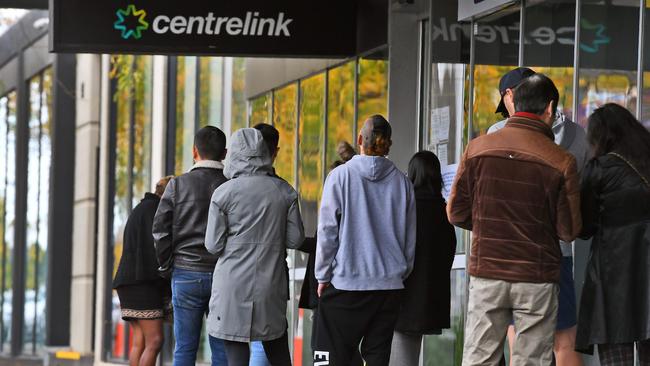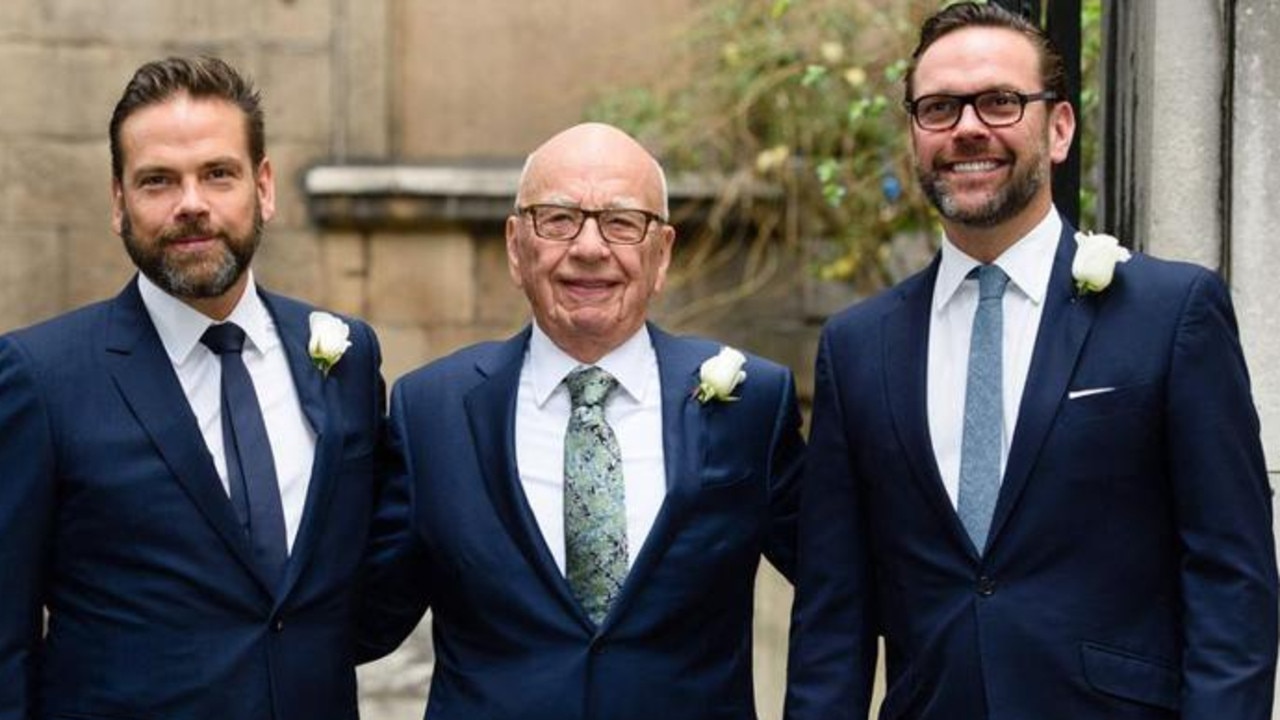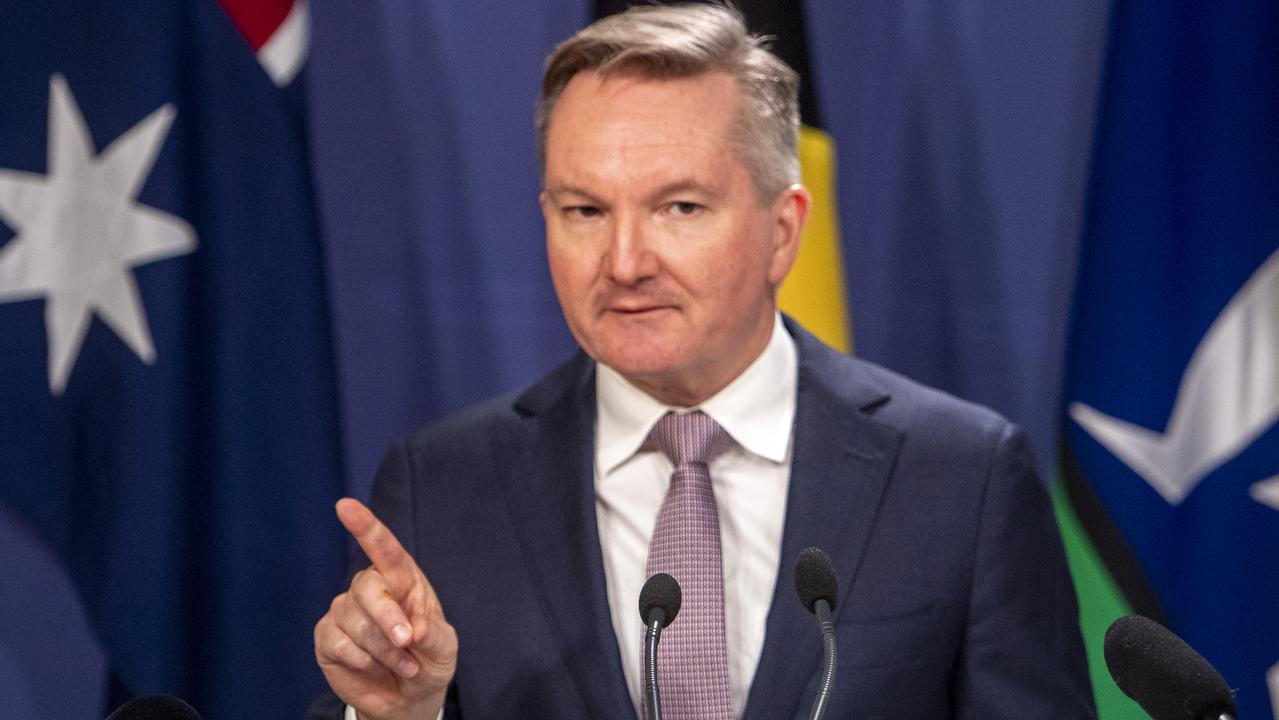Tom Minear: Strategy at play in government’s JobSeeker changes
This week’s JobSeeker changes will spark a difficult reality for employers and workers who’ve spent their lives setting themselves up for security.
Opinion
Don't miss out on the headlines from Opinion. Followed categories will be added to My News.
When Scott Morrison was the treasurer, he frustrated Malcolm Turnbull by “frontrunning” policy options.
“Time and again he’d float ideas on the front page and monitor the public reaction before determining whether it was good policy or bad policy,” the former prime minister wrote in his book.
Now Morrison has the top job, his media strategy has shifted slightly. Whenever a tough call must be made, his team drops breadcrumbs to frame the debate and soften the landing for their final policy.
Earlier this month, with a decision due on the permanent rate of the JobSeeker payment,
it was Finance Minister Simon Birmingham who started dropping hints.
He said there were “hundreds of thousands of Australians currently on JobSeeker who are single, have no children and largely have no impediments to work”, and opportunities existed for them in agriculture, mining, tourism in some areas, cleaning and the care sector.
This week, as Morrison’s cabinet met to lock in a $50 fortnightly increase to JobSeeker, the government then shared data to back up Birmingham’s argument.
There were 476,369 JobSeeker recipients with no impediments to work, according to Social Services Minister Anne Ruston, a quarter of whom were Victorians.
The regions with the most people in that category were all in Melbourne: 18,335 in the west, 17,176 in the inner suburbs and 14,949 in the southeast.
Ruston urged them to “look outside their past experience and retrain or try something new”.
MPs and business groups have plenty of stories about employers struggling to find the workers they need. They believe some unemployed Australians are clinging on to elevated COVID-19 support payments instead of taking any job they can find.
While Ruston and Birmingham were too polite to say it, the implication was obvious: Australia has a bludger problem. To ram home the point, when the government unveiled its JobSeeker changes, it announced a hotline for bosses to dob in those who said no to jobs.
Balancing the incentives and disincentives of JobSeeker are complicated calls.
The government was right to double the dole last year, and those on JobSeeker will continue to receive an extra $150 a fortnight above the normal $565 payment until the end of March.
Paring this support back was seen to be necessary to push recipients to find jobs. But the government’s data highlighting those with no impediments to work also revealed the political and practical difficulties with its strategy.
It is no coincidence Melbourne has the most jobseekers in that category. They are not bludgers — they are people whose lives were upturned by the city’s disastrous second wave.
They will not thank Morrison for what he says is the biggest boost to JobSeeker since the 1980s.
For them, it’s really a $100 fortnightly cut, forcing impossible choices between household essentials.
The risks of reducing this support from April are amplified by the simultaneous end of JobKeeper. Treasurer Josh Frydenberg is bullish the “overwhelming majority” of the 1.1 million workers on the wage subsidies will keep their jobs.
But even if an economic cliff is avoided, major industries will remain vulnerable with ongoing health restrictions.

The government’s JobKeeper and JobSeeker changes are timed to spur an inevitable restructure.
Taxpayers can’t keep businesses afloat forever; some will close, and workers will lose their jobs.
While this makes sense in theory, the reality is incredibly difficult for employers and employees who have spent their lives establishing businesses and building careers they thought
were secure.
Frydenberg and Morrison boast that 94 per cent of the 1.3 million Australians who lost their jobs or were stood down at the start of the pandemic are back in work. It is a remarkable achievement which glosses over the fact 1.2 million Australians remain on the dole.
Reserve Bank Governor Philip Lowe boxed the government in on the JobSeeker rate, describing it as a question of fairness.
But if that is the issue, how is living on $43.50 a day that different from $40?
And while the increase costs $9bn over four years, a bigger rise would have had a bigger economic impact, given those on welfare typically need to spend everything they receive.
The calculation therefore comes back to incentives, and according to top economist Jeff Borland, the government has the answer wrong there too.
He said a bigger increase would reduce hardship and boost the economy without “any likelihood of a negative effect on incentives for unemployed jobseekers to find work.”
“I can’t remember a policy change I have been more disappointed about,” Prof Borland said.
As social services groups attacked the government on Tuesday, Labor kept quiet. Having spent months arguing for an increase to JobSeeker, without nominating a new rate, the opposition didn’t even put out a press release about the decision.
Opposition Leader Anthony Albanese eventually had a bet each way, saying the $50 increase was “good” but that jobseekers “will still be doing it tough”.
Labor’s narrative targets those left behind in the COVID-19 recovery. But it needs to boost its economic credentials, and arguing for a higher rate would be a significant budgetary hit.
Morrison has opened a door for Albanese. He may not be willing to walk through.
Tom Minear is national politice editor




